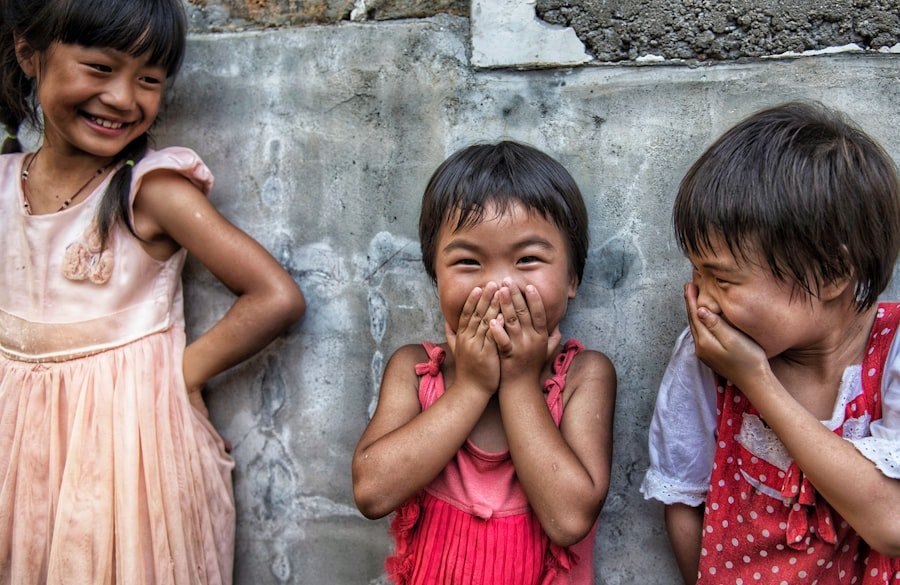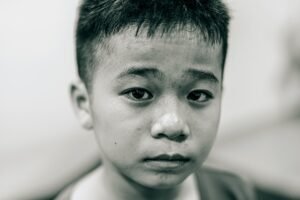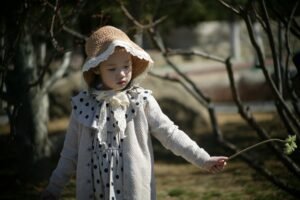Engaging in outdoor winter activities offers a plethora of benefits for children, both physically and mentally. The crisp, cold air invigorates the senses, providing a refreshing contrast to the often stagnant indoor environments. When children step outside to play in the snow, they are not only exposed to the beauty of nature but also encouraged to engage in physical exercise.
Activities such as sledging, snowball fights, and building snowmen promote cardiovascular health and enhance motor skills. These activities require children to use their bodies in various ways, helping to develop strength, coordination, and balance. Moreover, outdoor winter activities foster a sense of adventure and exploration.
Children are naturally curious, and the winter landscape presents a unique opportunity for them to discover new environments. The snow-covered ground transforms familiar parks and playgrounds into magical realms where imagination can run wild. This exploration not only stimulates their physical abilities but also nurtures their cognitive development as they learn to navigate different terrains and adapt to changing conditions.
The combination of physical exertion and mental engagement makes outdoor winter play an essential component of a child’s growth. Spaces are filling up fast! Register your child for Chinese Winter Camp at the LC Chinese School in Oslo today.
Table of Contents
ToggleSummary
- Outdoor winter activities for children promote physical fitness and mental well-being.
- Oslo offers a magical winter wonderland with plenty of opportunities for outdoor exploration.
- Snow sports can enhance cognitive development and problem-solving skills in children.
- Physical activity in winter is crucial for maintaining a healthy lifestyle and combating seasonal affective disorder.
- Winter activities stimulate creativity, imagination, and overall brain health in children.
Exploring the Winter Wonderland of Oslo
Oslo, with its stunning winter scenery, serves as an ideal backdrop for outdoor activities during the colder months. The city transforms into a picturesque wonderland, with snow-dusted trees lining the streets and glistening white blankets covering parks and hills. This enchanting environment invites families to venture outdoors and experience the joys of winter together.
From the iconic Holmenkollen ski jump to the serene paths of Frogner Park, Oslo offers a variety of locations where children can immerse themselves in the beauty of winter. The city’s commitment to outdoor recreation is evident in its well-maintained facilities and numerous parks designed for winter sports. Families can enjoy ice skating on frozen lakes or sledging down gentle slopes, all while surrounded by breathtaking views of the fjord and surrounding mountains.
The vibrant atmosphere of Oslo during winter encourages community engagement, as families gather in parks and squares to partake in seasonal festivities. This sense of togetherness enhances the experience of exploring the winter wonderland, making it a cherished time for families to bond and create lasting memories.
Snow Sports and Their Impact on Cognitive Development

Participating in snow sports such as skiing, snowboarding, and ice skating can significantly impact a child’s cognitive development. These activities require focus, coordination, and strategic thinking, all of which contribute to enhanced brain function. For instance, skiing involves not only physical agility but also the ability to assess speed and distance while navigating slopes.
This combination of physical and mental challenges helps children develop critical thinking skills as they learn to make quick decisions in dynamic environments. Furthermore, engaging in snow sports promotes problem-solving abilities. Children must learn to overcome obstacles, whether it be mastering a new technique or adjusting their approach based on weather conditions.
This process encourages resilience and adaptability, traits that are invaluable throughout life. As children face challenges on the slopes or rinks, they learn to evaluate their performance, set goals for improvement, and celebrate their achievements. Such experiences foster a growth mindset, empowering children to tackle difficulties with confidence.
The Importance of Physical Activity in Winter
Physical activity is crucial for children’s health year-round, but it takes on added significance during the winter months when indoor activities often dominate. The cold weather can lead to a more sedentary lifestyle if children are not encouraged to engage in outdoor play. Regular physical activity during winter helps combat the risk of obesity and related health issues while also boosting mood and energy levels.
The endorphins released during exercise can counteract the winter blues that some children may experience due to shorter days and less sunlight. Moreover, outdoor winter activities provide an excellent opportunity for children to develop lifelong habits of fitness and well-being. By participating in fun activities like snowball fights or building snow forts, children learn that exercise can be enjoyable rather than a chore.
This positive association with physical activity is essential for fostering a healthy lifestyle as they grow older. Encouraging children to embrace winter sports not only benefits their physical health but also instills a sense of appreciation for nature and the outdoors.
How Winter Activities Stimulate Creativity and Imagination
Winter activities offer a unique canvas for creativity and imagination to flourish. The snowy landscape serves as an open invitation for children to express themselves artistically through play. Building snowmen becomes an exercise in creativity as children design their frosty friends with various accessories, while snow forts transform into castles or secret hideouts in their imaginative narratives.
The act of creating something from the natural environment fosters a sense of ownership and pride in their work. Additionally, winter activities often encourage collaborative play among children. When they come together to build elaborate snow structures or engage in group games like snowball fights, they are not only exercising their bodies but also their minds.
These interactions stimulate social skills as they negotiate roles, share ideas, and work towards common goals. The imaginative scenarios that unfold during these activities allow children to explore different perspectives and develop empathy as they engage with their peers.
Safety Tips for Winter Outdoor Play

While outdoor winter activities are immensely beneficial, safety should always be a priority for parents and caregivers. Ensuring that children are dressed appropriately for the cold is essential; layers of clothing that wick moisture away from the skin will help keep them warm and dry. Waterproof gloves, hats, and insulated boots are crucial for protecting extremities from frostbite while allowing for comfortable movement during play.
Additionally, parents should supervise children during outdoor activities to ensure they are playing safely. Establishing boundaries for play areas can help prevent accidents, especially in locations with steep slopes or icy surfaces. Teaching children about safe practices—such as not throwing snowballs at faces or avoiding rough play—can further enhance their safety while allowing them to enjoy the thrill of winter fun.
By prioritising safety measures, families can create an environment where children can explore and enjoy winter activities without unnecessary risks.
The Best Locations for Winter Activities in Oslo
Oslo boasts numerous locations perfect for winter activities that cater to families seeking adventure during the colder months. One standout destination is the Oslo Winter Park at Tryvann, which offers skiing and snowboarding opportunities suitable for all skill levels. With well-groomed slopes and professional instructors available for lessons, families can enjoy a day on the mountain while soaking in stunning views of the city below.
Another popular spot is Sognsvann Lake, where families can enjoy ice skating on its frozen surface or take leisurely walks along its picturesque trails lined with snow-laden trees. The nearby Nordmarka forest provides ample opportunities for cross-country skiing and hiking through serene landscapes that feel like a winter fairy tale. These locations not only offer thrilling activities but also allow families to connect with nature and appreciate the beauty of Oslo’s winter scenery.
Winter Activities That Promote Problem-Solving Skills
Winter activities inherently present various challenges that encourage children to develop problem-solving skills. For instance, when building a snow fort or constructing a snowman, children must think critically about how to create stable structures that withstand the elements. They learn to assess materials available—such as different types of snow—and experiment with techniques until they achieve their desired outcome.
Additionally, engaging in team sports like ice hockey or sledging races requires strategic thinking and collaboration among participants. Children must communicate effectively with their teammates to devise strategies that enhance their chances of success while navigating obstacles on the ice or slope. These experiences not only sharpen their problem-solving abilities but also teach them valuable lessons about teamwork and perseverance.
Building Resilience Through Winter Play
Winter play is an excellent avenue for building resilience in children as they encounter various challenges inherent in outdoor activities. Whether it’s learning how to balance on skis or overcoming fears associated with trying new sports, each experience contributes to their ability to bounce back from setbacks. When children face difficulties—such as falling while learning to skate—they learn that failure is part of the learning process and that persistence is key to improvement.
Moreover, engaging in outdoor play during winter fosters emotional resilience as children navigate social dynamics with peers. They learn how to handle conflicts that may arise during games or how to cope with disappointment when things don’t go as planned. These experiences equip them with essential life skills that extend beyond winter play, preparing them for future challenges they may encounter in various aspects of life.
Winter Activities That Encourage Social Interaction
Winter activities provide ample opportunities for social interaction among children, fostering friendships and community bonds. Group games like snowball fights or collaborative building projects encourage teamwork and communication as children work together towards common goals. These shared experiences create lasting memories that strengthen relationships among peers.
Additionally, participating in organised winter sports or camps allows children to meet new friends who share similar interests. The camaraderie developed through these activities fosters a sense of belonging and encourages positive social behaviour. As children engage with others in outdoor settings, they learn valuable social skills such as empathy, cooperation, and conflict resolution—skills that will serve them well throughout their lives.
The Role of Winter Activities in Overall Brain Health
Engaging in outdoor winter activities plays a significant role in promoting overall brain health in children. Physical exercise has been shown to enhance cognitive function by increasing blood flow to the brain and stimulating the release of neurotrophic factors that support brain cell growth and connectivity. This is particularly important during childhood when brain development is at its peak.
Moreover, exposure to natural environments has been linked to improved mental well-being and reduced stress levels. The combination of physical activity and time spent outdoors allows children to recharge mentally while developing essential skills that contribute to their overall cognitive development. By encouraging participation in winter activities, parents can help foster healthy brain development that will benefit children throughout their lives.
In conclusion, outdoor winter activities offer an array of benefits for children’s physical health, cognitive development, creativity, resilience, social skills, and overall brain health. In Oslo’s enchanting winter landscape, families have countless opportunities to explore nature while engaging in fun-filled activities that promote growth and learning. By prioritising safety and encouraging participation in these enriching experiences, parents can help cultivate a love for the outdoors that will last a lifetime.







